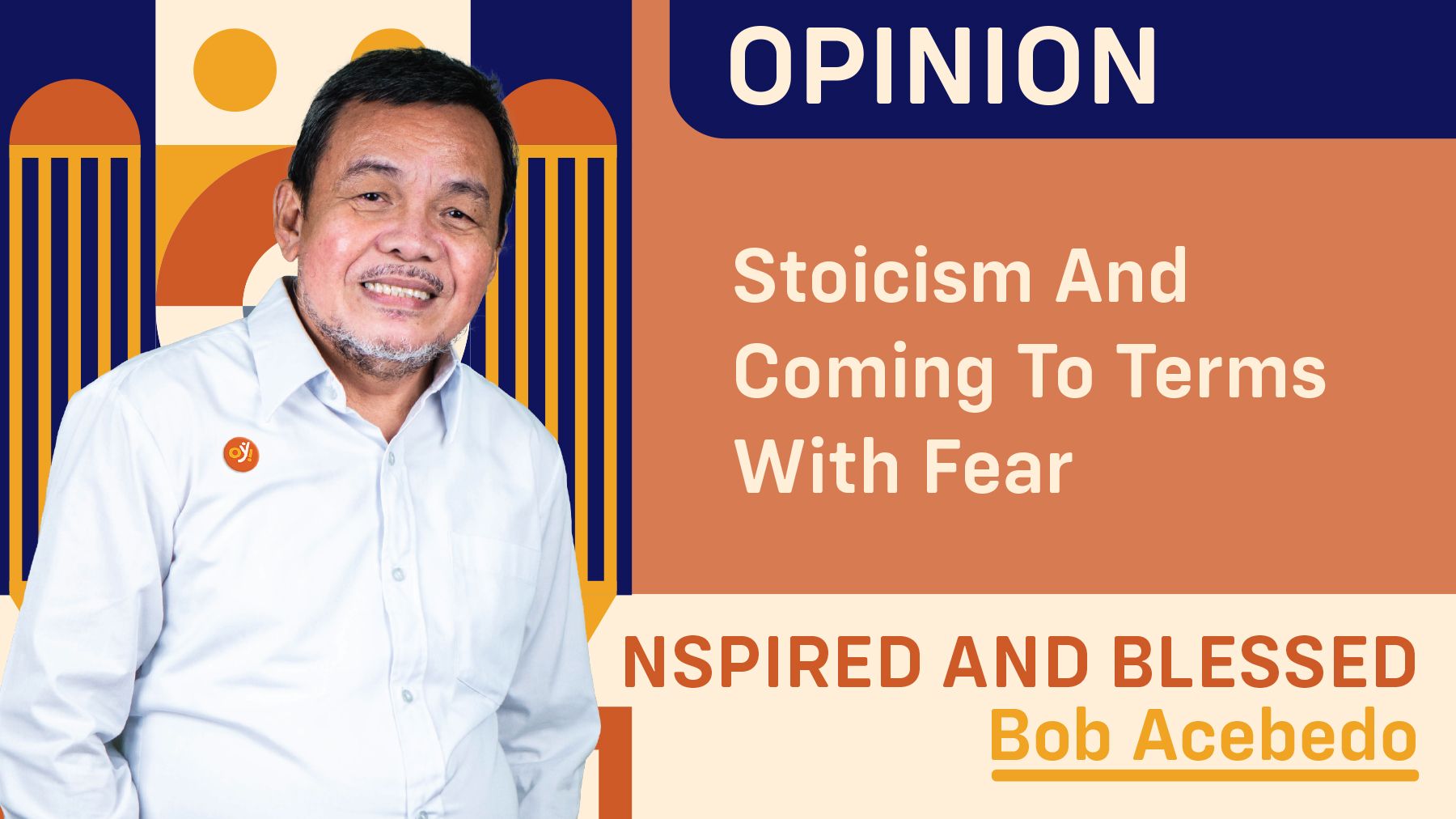Back in my college seminary days of philosophy studies, the ancient Greek philosophy of Stoicism made a lesser appeal to me than the modern philosophy of Existentialism (“existence precedes essence”).
My cursory prejudice of Stoicism was grounded on: 1) its emphasis on emotional detachment and solely on rationality makes one overly simplistic and out of touch with the real complexities of human emotion or with reality in general; 2) its emphasis on acceptance of one’s fate and uncontrollable events in the world can lead to a lack of action, empathy, and personal agency.
Stoicism teaches that life’s pleasures and pains are fleeting and unimportant; and one should focus on knowledge and virtue. Founded by philosopher Zeno of Citium and popularized by Marcus Aurelius, Stoics pride themselves on not being caught up in the mood swings of everyday life and not relying on material goods, pleasures, or fleeting relationships to keep them happy, but rather work towards a larger goal of virtue and knowledge.
But, with the recent resurgence of Stoicism, and amid the contemporary “Machiavellian” scheme of things where emotion and impulse seem to rule, I likely perceive that Stoicism can provide solace, alternative framework, and sense of control of one’s life.
For the Stoics, we can only control what we can control, and we shouldn’t sweat what we can’t prevent. While experiencing pleasure and pain is part of life, Stoics tell us that those moods shouldn’t dominate our existence. There will be moments of happiness and moments of sadness, but those shouldn’t be the moments we’re living for.
The only thing we can control, Stoics aver, is ourselves – meaning, “how we react” to the situation around us. (Gee whiz, I couldn’t help adding that, indeed, what a pity it is for us if, not being able to control our external environment, we cannot likewise control our own internal self).
In particular, admittedly so, I find Stoicism’s philosophy of fear quite appealing.
There’s no denying about how fear permeates our imperfect lives and world. From the grandest or even unfounded ones down to the personal and trivial, we’re grossly AFRAID of: losing our job or having no income, hunger, poverty, disease, bondage, natural disasters and wars, losing our loved ones, being isolated or rejected, of spiders and all sorts of phobias… of evildoers, of death and afterlife, etc., etc.
According to the Stoics, all our fears are but rooted in ignorance. We are afraid of death (thanatophobia), not only because we’re afraid of leaving, but more so because we do not know what lies ahead or what death is all about. We’re afraid of any adversity – be it a person or a situation – largely because we do not have a clear grasp of our enemy or of the undesirable situation. In short, we are afraid of what we don’t understand. We are vulnerable to what we cannot grasp.
Thus, for the Stoics, in the face of adversity (which brings about fear), the logical way is to face it, know it, and prepare or come to terms with it. The Stoic philosopher, Seneca, aptly said: “The man who has anticipated the coming of troubles takes away their power when they arrive.”
From the perspective of neuroscience, fear is processed in the amygdala, a small almond-shaped structure in the brain responsible for regulating emotions and survival instincts. When we perceive a threat, the amygdala sends a signal to other parts of the brain, triggering the fight or flight response.
Let me insert a personal insight on the “fight or flight” mechanism. In my past experience(s) of handling adversities, more often than not, finding myself lacking in resources in order to “fight”, I have often resorted to “flight” or walking away, what with whatever consequences are accrued to such decision.
Lately, however, I have realized that the wiser alternative is navigating the middle-ground – that is, neither confrontation nor walking away, but negotiating for what is “fair” for both parties. Sun Tzu, in his Art of War, wisely put it: “The greatest victory is that which requires no battle.”
Now, regardless or more than Stoicism and in the empirical scheme of things, how can we cope or come to terms with fear in the face of any adversity (whether real or imagined)?
Let me proffer the following points.
One, define your fears. This entails identifying “what you are really afraid of” and tracing its root causes (from present to past). This also includes welcoming or embracing uncertainty with openness, curiosity, willingness to explore the unknown, and desire to learn and grow.
Two, negative visualization. This involves visualizing the worst-case scenario in any given situation and accepting it as a possibility. This can prepare you mentally and emotionally, increase your sense of resilience and inner strength, and reduce the power of fear holding over you.
Three, regulate fear by preparing realistic interventionsapropos the worst-case scenario possibilities.
Four, reflect, pray, and seek divine guidance and grace.
My parting note: In my challenge-laden or roller-coaster-like life journey, for any adversity that come my way, I have always started with the fourth one – praying, reflecting, and seeking God’s help – in conquering my fear. “Cast all your fears on Him because He cares for us” (1 Peter 5:7).
#WeTakeAStand #OpinYon #ColumnbyBobAcebedo #InspiredAndBlessed
